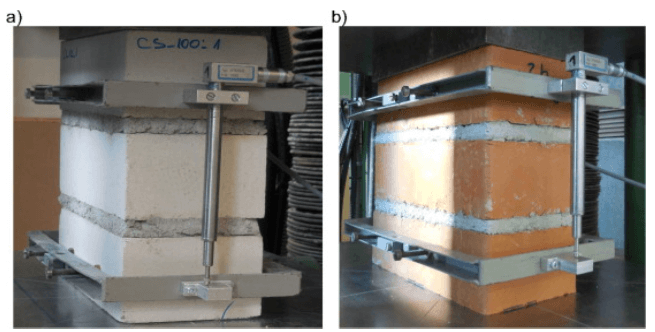Masonry construction has been a cornerstone of architecture for centuries, providing enduring structures with aesthetic appeal and structural integrity. However, ensuring the strength and quality of masonry materials is paramount to guaranteeing the safety and longevity of buildings. Prism testing emerges as a vital tool in this regard, offering insights into the compressive strength and performance of masonry units. Let’s embark on a journey to demystify prism testing and its relevance in understanding masonry strength.
Understanding Prism Test Masonry:
What is Prism Testing?
Prism testing involves the fabrication and testing of masonry prisms, which are representative samples of masonry units combined with mortar. These prisms are subjected to compressive loading to evaluate their strength and durability. The results obtained from prism testing provide valuable data for assessing the quality and performance of masonry materials.
Importance of Prism Testing:
Prism test masonry serves as a reliable method for assessing the compressive strength of masonry units in real-world conditions. By simulating the actual construction process and environmental factors, prism testing offers accurate insights into the behavior of masonry assemblies under load. This information aids engineers, architects, and construction professionals in making informed decisions regarding material selection, structural design, and project specifications.
Process of Prism Testing:
The process of prism testing involves several key steps, including specimen preparation, curing, and testing. Firstly, masonry prisms are constructed using standard-sized masonry units and mortar mixtures as per industry guidelines. These prisms are then cured under controlled conditions to simulate the effects of time and environmental exposure. Subsequently, the prisms are subjected to compressive loading using specialized testing equipment, and the maximum load-bearing capacity is recorded.
Interpretation of Results:
The results obtained from prism testing are typically expressed in terms of compressive strength, measured in pounds per square inch (psi) or megapascals (MPa). These values indicate the maximum load that the masonry assembly can withstand before failure occurs. Engineers use these results to assess the adequacy of masonry materials for specific applications and to ensure compliance with building codes and standards.
Read also: The Power of Commercial Photography in Fashion Marketing
Applications of Prism Testing:
Prism testing finds widespread applications in the construction industry, particularly in quality control and assurance processes. It is utilized during material selection, project planning, and construction phases to validate the performance of masonry units and assemblies. Prism testing also plays a crucial role in forensic investigations, helping to determine the cause of structural failures or deficiencies in existing buildings.
FAQs (Frequently Asked Questions):
Q1. How does prism testing differ from other methods of masonry testing?
A1. Prism testing involves the fabrication and testing of full-scale masonry assemblies, providing a more accurate representation of real-world conditions compared to laboratory tests on individual units.
Q2. What factors can influence the results of prism testing?
A2. Factors such as the type of masonry units, mortar composition, curing conditions, and testing procedures can impact the results of prism testing. It is essential to control these variables to ensure reliable and consistent outcomes.
Q3. Can prism testing be performed on-site or in a laboratory setting?
A3. Prism testing can be conducted both on-site and in laboratory settings, depending on the specific requirements of the project and the availability of testing facilities.
Conclusion:
In conclusion, prism testing serves as a valuable tool for assessing the strength and quality of masonry materials, offering crucial insights for construction projects. By understanding the basics of prism testing and its implications, stakeholders in the construction industry can make informed decisions to ensure the safety, durability, and integrity of masonry structures. Embracing the principles of quality assurance and performance testing, we pave the way for a safer and more resilient built environment.
Incorporating prism testing into your construction projects underscores your commitment to excellence and ensures the longevity of your structures. As you embark on your journey in the world of masonry, trust certifiedmtp.com to provide you with the high-quality equipment and support you need to succeed. Contact us today to learn more about our comprehensive range of materials testing solutions and take your projects to new heights of success.


